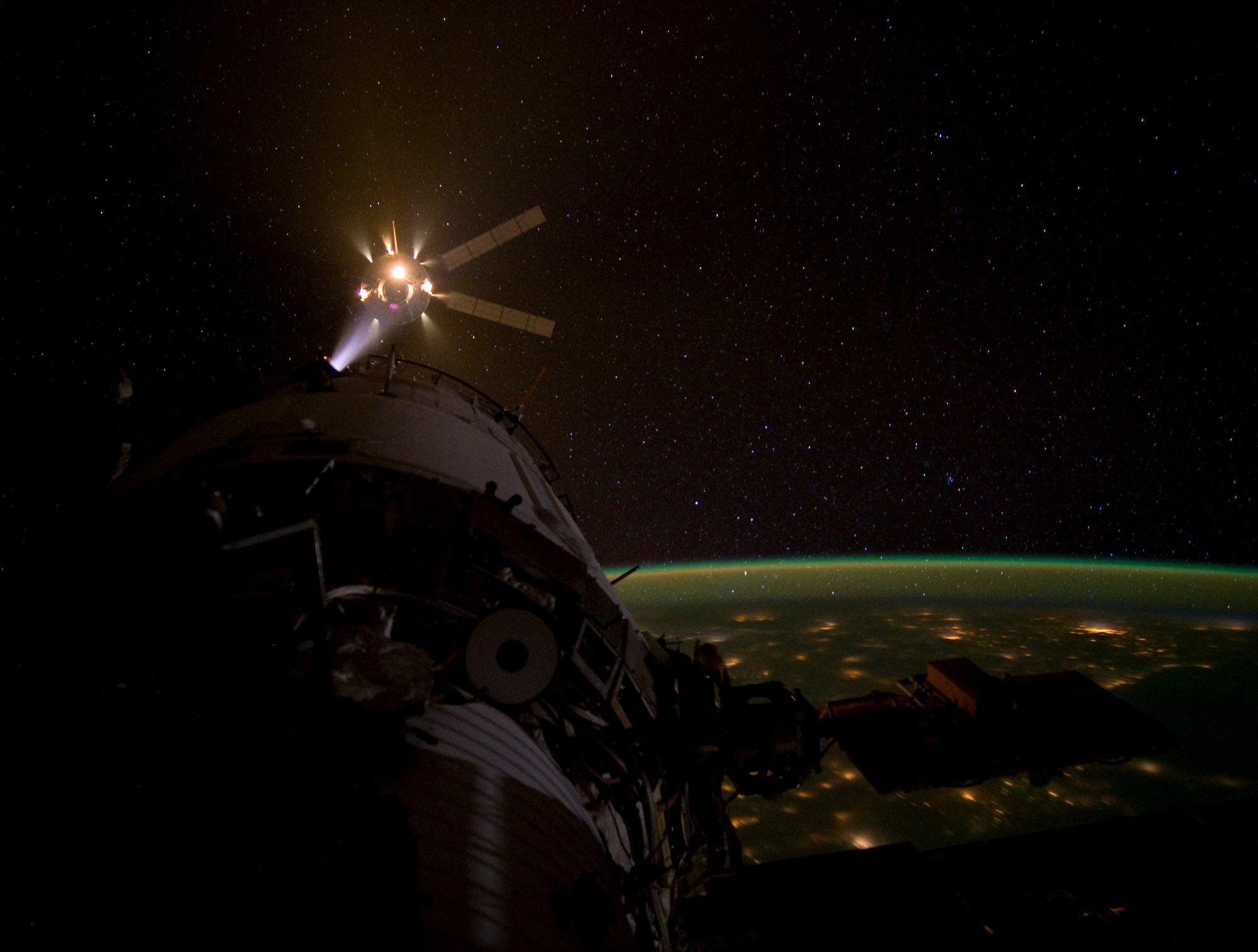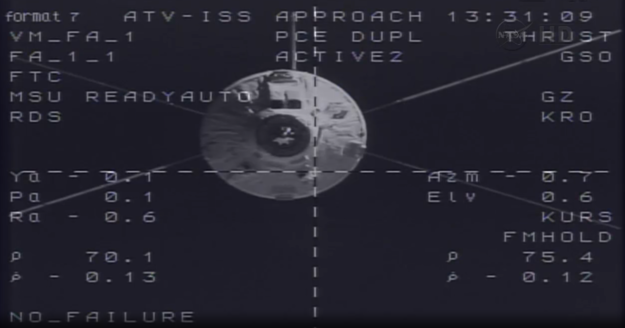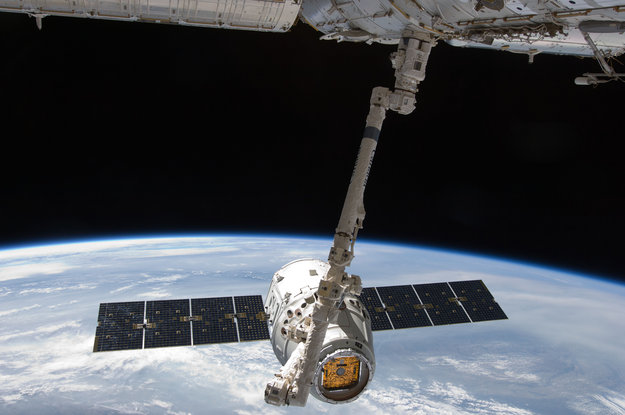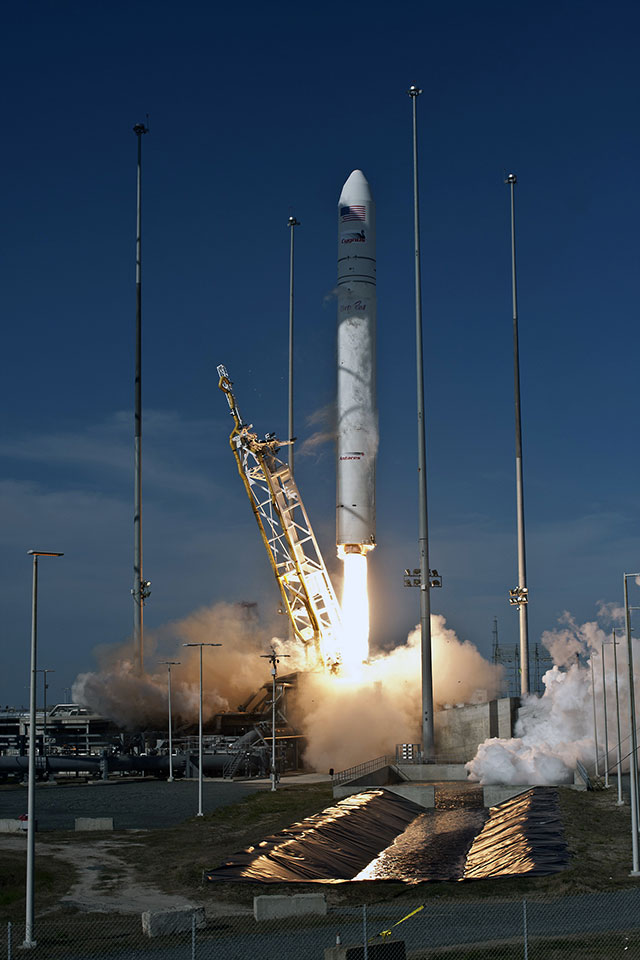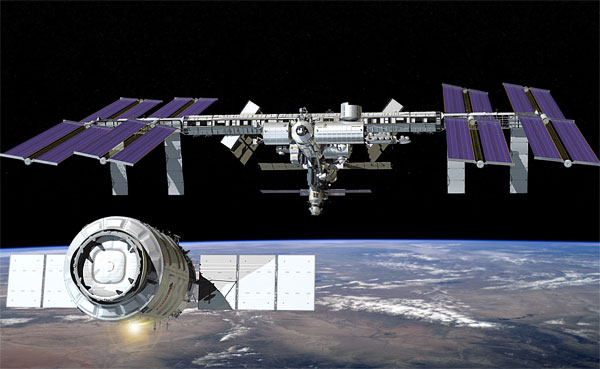An Automated Transfer Vehicle (ATV) approaches the International Space Station packed with experiments and supplies. Image: ESA/ISS
Over the weekend (June 15-16), the European Space Agency’s, Automated Transfer Vehicle (ATV) successfully docked with the International Space Station (ISS). The ATV is one of a fleet of non-NASA unmanned vehicles that are now providing cargo services to the orbiting laboratory.
Along with the Russian ‘Progress’ cargo spacecraft and Japan’s ‘ HII Transfer Vehicle’, they deliver to the space station much needed supplies of food, water and spare parts. They also carry a range of experiments and equipment destined to be utilised the unique microgravity environment of Earth orbit.
ATV callled ‘Albert Einstein’ approaches the station’s docking port. Image: NASA/ISS
Such is the need for supplies and equipment, a new generation of spacefaring cargo vessels are now coming into service. This time, not those developed by government funded space agencies, but from a new fleet of private corporations with the entrepreneurial spirit to explore new ventures in the space frontier.
The first successful company to begin bringing supplies to the International Space Station is ‘SpaceX’. Headed by Paypal founder, Elon Musk, SpaceX has already flown several ‘Dragon’ capsules to ISS delivering up to 6,000 kilograms of cargo to space and returning another 3,000 kilograms of experiments and excess equipment back to Earth.
The space station’s robot arm captures the Dragon capsule. Image: NASA/SpaceX
SpaceX launches the Dragon capsule on a rocket that it developed, the ‘Falcon9’, using launch pad facilities that were once used by NASA at Cape Canaveral. All mission activities are handled by SpaceX who have collaborated with NASA through the development and operational phases for Falcon9 and Dragon through the Commericial Orbital Transporation Services (COTS) program.
Through COTS, the US is encouraging these space entrepreneurs to develop the cargo launch and delivery services which ultimately will reduce costs for the, till now, government lead space programs. Private industry has always built the rockets NASA has used under government financed contracts. Now the shift is towards purchasing services from those and other developing corporations to reduce costs and drive forward new industries and jobs.
Lift-off of Orbital Science Corp’s Antares rocket. Image: NASA/OSC
While SpaceX was the first to demonstrate a reliable launch and cargo service, they won’t be on their own for long. Orbital Science Corporation (OSC) is fast developing its own capabilities in the space delivery business.
OSC has already flown test flights on their ‘Antares’ launch vehicle to prove safety and reliability of the rocket and launch systems. Later this year, they hope to launch their cargo vehicle, the Cygnus Advanced Maneuvering Spacecraft (CAMS) to demonstrate approach, rendezvous and automated docking systems at the International Space Station.
Orbital Science Corp’s Cygnus capsule approaches ISS. Image: OSC
With the space frontier becoming ever closer through this new spirit of private sector space travel, the future looks bright for the new generation of space vehicles and entrepreneurs that can proudly state: “We deliver!”

